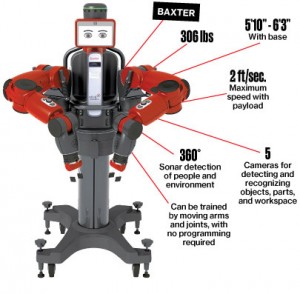Ok, let’s be as transparent as possible:
1. I’m pissed at LinkedIn like a scorned girlfriend because they won’t let me buy their corporate version LinkedIn Recruiter (not that I need it – I know you can do x-ray searches or use a great product like Scavado for a fraction of the price and get the same info. – but it’s the racialist mentality of it all – “No, you can’t have it because your a bad staffing company and we only give it to good corporate recruiters) – see – scorned girlfriend.
2. I use LinkedIn every day. Mostly to recruit employees from one company to another company, and someone pays me to do this.
3. I like using LinkedIn – solid U/I and a great recruiting tool, inexpensive. (we call that a triple threat)
OK – On with the show!
Last week LinkedIn announced a new product at their annual Talent Connect conference, called Talent Brand Index or BrandConnect – or something like that – as you can see I wasn’t invited (which I’m actually not pissed about – I mean I’d like to go – but it’s not like the scorned girlfriend thing). Basically this is a tool/measure of how much your brand is engaged on the LinkedIn site – but it has a number of components baked into the algorithm that make this less than black and white. I have 3 opinions of this announcement that range in 3 very different psychosis:
Pessimistic View (LinkedIn Haters)
Holy crap – this is just another way for LinkedIn to hold companies hostage over their brand! Basically, the Talent Brand Index, if I want a higher score, forces me to encourage my employees to get on LinkedIn – the more employees I have on, the higher score I get. Also, the more products I buy from LinkedIn, the higher my score. I don’t want my employees to be on LinkedIn because my competition will be pimping them non-stop and I’m bound to lose some. Plus, they keep using the words “Brand Engagement” that invariably will get confused by people as my “employee engagement” when it really has no correlation.
Optimistic View (LinkedIn Lovers)
This tool is great at showing me where I can increase my “engagement” of my brand within the product. We trust our employees and want them to network professionally and share our brand with as many people as possible – it’s good for them, it’s good for us. We believe we have a great place to work and increasing our brand engagement on LinkedIn will only help our recruiting efforts. Plus, this new tool really, for the first time, gives us great insight to how people outside of our company feel and interact with our employment brand. It’s great data!
Pragmatic View (The Middle)
If you have a “great” work environment and strong employment brand (let’s say 10% of companies) this is wonderful. You have low turnover, high employee engagement – this will only help you recruit more folks – and more employees you have on won’t hurt you because they aren’t leaving you. The other 90% of companies could see some impact from this – if they go out and encourage their employees to actively get on LinkedIn, in hopes of raising your Brand Index score. You have pockets that aren’t pretty and you’ll have folks that get picked off by your competition. This will then cause you more work. It’s not to say those people wouldn’t leave on their own – some will, regardless, but I don’t want to throw them a job fair in the lobby of our building. Reality check – most HR shops/companies don’t have the people, the money or the desire to really move the needle on increasing their “LinkedIn Brand Index” score – so this will be a non-issue for most.
Final thought –
I would like those companies who really think this is a great deal to do just 1 thing for me. Will you do that? Today, go to your CIO and tell them you are going to have the entire Software Development team put their profiles up on LinkedIn – because you want to raise your Brand Index score. Then let me know the results – if you still have a job, or are conscious.

